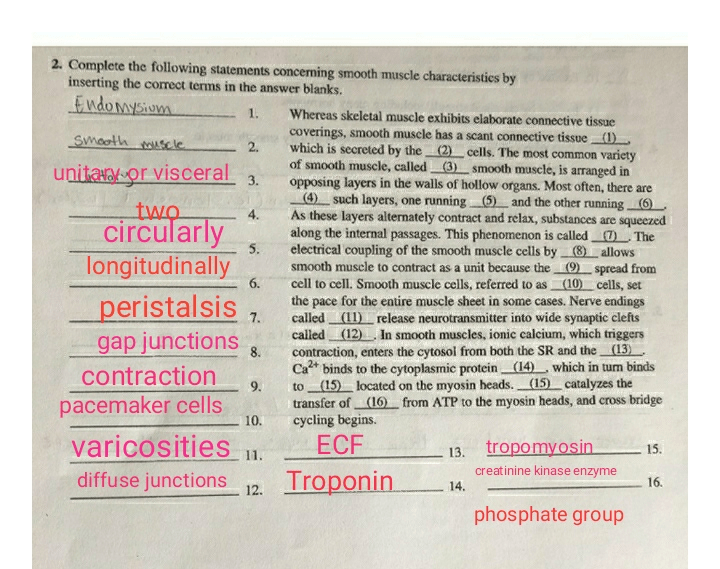Which of the following statements is correct concerning hypnosis? This question has been the subject of much debate and research over the years. Hypnosis is a state of focused attention and heightened suggestibility, and it has been used for centuries to treat a variety of conditions, from pain management to anxiety disorders.
But what exactly is hypnosis, and how does it work?
In this article, we will explore the nature of hypnosis, its applications, and its techniques. We will also discuss the ethical considerations associated with hypnosis and provide answers to some frequently asked questions.
Hypnosis and its Nature: Which Of The Following Statements Is Correct Concerning Hypnosis

Hypnosis is a state of heightened suggestibility and focused attention. It is characterized by a narrowing of awareness, increased responsiveness to suggestions, and a sense of detachment from the surrounding environment. Hypnosis can be induced through a variety of techniques, including progressive relaxation, guided imagery, and verbal suggestion.
There are different theories and perspectives on the nature of hypnosis. Some researchers believe that hypnosis is a state of dissociation, in which the conscious mind becomes separated from the subconscious mind. Others believe that hypnosis is a form of self-regulation, in which the individual voluntarily enters a state of focused attention and suggestibility.
Regardless of the underlying mechanism, hypnosis has been shown to be an effective tool for a variety of purposes, including therapy, pain management, and habit change. Suggestion and imagination play a key role in hypnosis, as the individual is able to accept and respond to suggestions that they would normally reject in a waking state.
Hypnosis and its Applications, Which of the following statements is correct concerning hypnosis
Hypnosis is used in a variety of clinical settings, including:
- Therapy: Hypnosis can be used to treat a variety of psychological conditions, such as anxiety, depression, and post-traumatic stress disorder.
- Pain management: Hypnosis can be used to reduce pain in a variety of conditions, such as chronic pain, cancer pain, and childbirth.
- Habit change: Hypnosis can be used to help people change unwanted habits, such as smoking, overeating, and nail biting.
There is a growing body of research that supports the effectiveness of hypnosis for a variety of purposes. For example, a study published in the journal JAMA Internal Medicine found that hypnosis was effective in reducing pain in patients with chronic pain.
Hypnosis and its Techniques
There are a variety of techniques that can be used to induce hypnosis. Some of the most common techniques include:
- Progressive relaxation: This technique involves gradually relaxing the body, starting with the toes and working up to the head.
- Guided imagery: This technique involves using mental images to create a sense of relaxation and focus.
- Verbal suggestion: This technique involves giving the individual verbal suggestions that they are becoming more relaxed and focused.
The process of deepening hypnotic states involves gradually increasing the level of relaxation and focus. This can be done by using a variety of techniques, such as deepening the voice, slowing down the speech, and using more specific and direct suggestions.
Specific verbal and non-verbal cues can be used to deepen the hypnotic state. Verbal cues include using a monotone voice, speaking slowly and deliberately, and using repetitive language. Non-verbal cues include maintaining eye contact, using hand gestures, and creating a relaxed and comfortable environment.
Hypnosis and its Ethical Considerations
It is important to note that hypnosis is not a form of mind control. The individual always retains control over their own behavior, even while in a hypnotic state.
There are a number of ethical guidelines and best practices for practicing hypnosis. These guidelines include:
- Obtaining informed consent from the individual before inducing hypnosis.
- Using hypnosis only for therapeutic purposes.
- Respecting the individual’s privacy and confidentiality.
There are potential risks and contraindications associated with hypnosis. These risks include:
- Individuals with certain mental health conditions, such as schizophrenia, may be at risk for experiencing negative side effects from hypnosis.
- Hypnosis should not be used on individuals who are under the influence of alcohol or drugs.
- Hypnosis should not be used on individuals who are pregnant.
It is important for individuals to be aware of these risks and contraindications before undergoing hypnosis.
Question & Answer Hub
What is hypnosis?
Hypnosis is a state of focused attention and heightened suggestibility. It is often induced by a hypnotherapist using verbal cues and guided imagery.
How does hypnosis work?
Hypnosis works by altering brain activity. When a person is hypnotized, their brain waves slow down and they enter a state of deep relaxation. This state of relaxation makes them more receptive to suggestions.
What are the benefits of hypnosis?
Hypnosis has been shown to be effective for a variety of conditions, including pain management, anxiety disorders, and smoking cessation.
Are there any risks associated with hypnosis?
Hypnosis is generally considered to be safe, but there are some potential risks, such as anxiety, headaches, and nausea.


